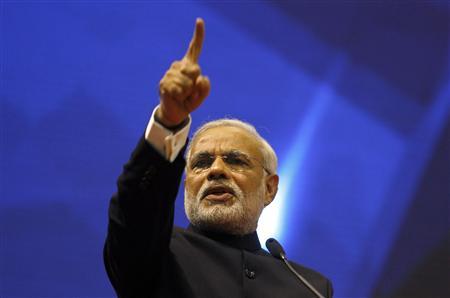
In a first concrete challenge to the Modi government's bullying of UPA-appointed governors, Uttarakhand Governor Aziz Qureshi refused to quit his post and moved the Supreme Court against the government's pressure.
The Supreme Court which took up the first-of-its-kind petition for hearing on Thursday before the three-judge bench headed by Chief Justice RM Lodha, has now directed the Centre to file its response within 6 weeks on Qureshi's petition, and has referred the plea to a 5-judge Constitution Bench.
Ever since the Modi government came to power in May, it has pressurised at least seven governors appointed by the former UPA-government to quit, and even sacked Mizoram governor Kamla Beniwal last month, 30 days after transferring her from Gujarat.
Several governors, including Uttar Pradesh governor BL Joshi and Nagaland governor Ashwani Kumar, have resigned under pressure.
Qureshi on Wednesday hit out at the central government citing the Union Home Secretary's "audacity" in pressurising him to put down his papers. He chided the undermining of the constitutional office of the governor by a secretary-level officer, as reported by The Indian Express.
In his petition, Qureshi has quoted Articles 155 and 156 (1) of the Indian Constitution, which state that the governor can hold office during the 'pleasure' of the President. Qureshi said that as long as he continued to enjoy the confidence of the President, he would stay in office till he completed his five-year term.
He also referred to the 2010 Supreme Court ruling wherein the apex court had held that a change in government was not a valid ground to remove governors from their posts.
According to the ruling, a governor "cannot be removed on the ground that he is out of sync with the policies and ideologies of the Union Government or the party in power at the Centre."
The Court had even prescribed that the President must have a valid cause to oust a governor. "While the President need not disclose or inform the cause for his removal to the governor, it is imperative that a cause must exist. If we do not proceed on that premise, it would mean that the President, on the advice of the council of ministers, may make any order which may be manifestly arbitrary or whimsical or mala fide," the bench had said, The Times of India reported.
Six governors have resigned so far since Prime Minister Narendra Modi took charge, while some governors such as Sheila Dikshit in Kerala and K Sankaranarayanan in Maharashtra have refused to bow down to pressure.

















